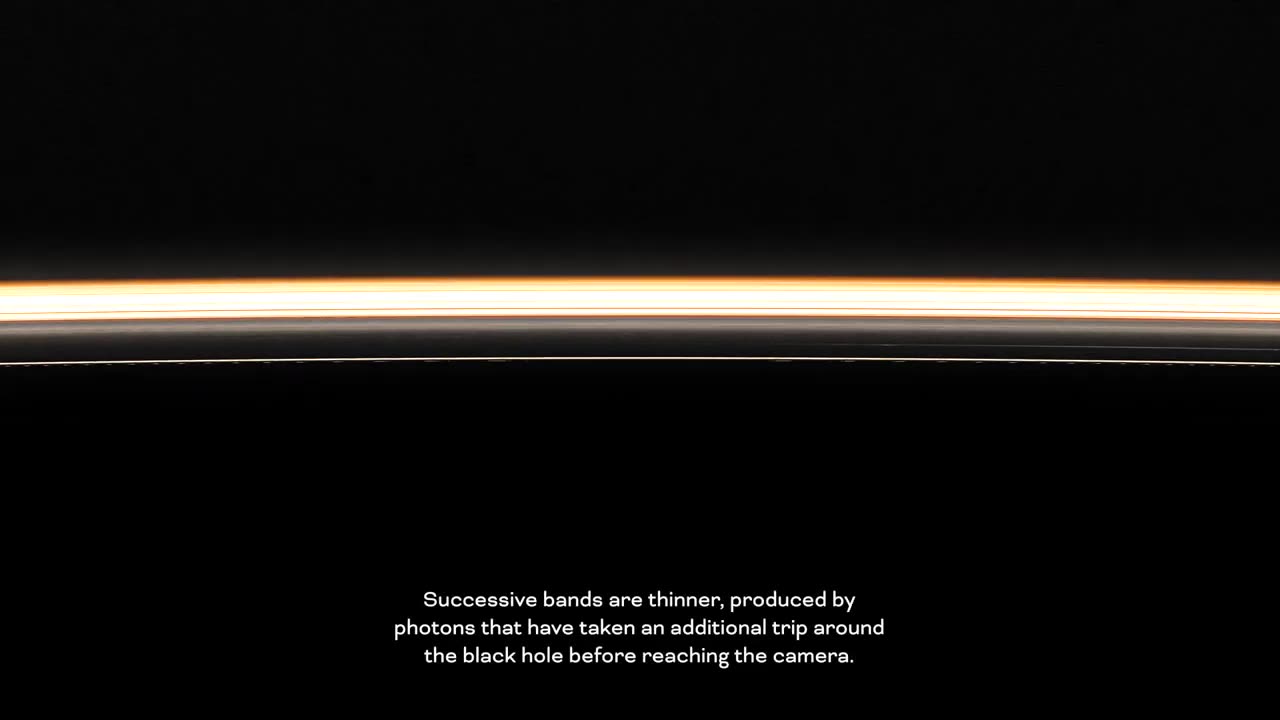Premium Only Content

NASA Simulation’s Plunge Into a Black Hole: Explained
This new, immersive visualization produced on a NASA supercomputer represents a scenario where a camera — a stand-in for a daring astronaut — enters the event horizon, sealing its fate.
Goddard scientists created the visualizations on the Discover supercomputer at the NASA Center for Climate Simulation.
The destination is a supermassive black hole with 4.3 million times the mass of our Sun, equivalent to the monster located at the center of our Milky Way galaxy. To simplify the complex calculations, the black hole is not rotating.
A flat, swirling cloud of hot, glowing gas called an accretion disk surrounds the black hole and serves as a visual reference during the fall. So do glowing structures called photon rings, which form closer to the black hole from light that has orbited it one or more times. A backdrop of the starry sky as seen from Earth completes the scene.
The project generated about 10 terabytes of data — equivalent to roughly half of the estimated text content in the Library of Congress — and took about 5 days running on just 0.3% of Discover’s 129,000 processors. The same feat would take more than a decade on a typical laptop.
-
 LIVE
LIVE
Eternal_Spartan
10 hours agoThe Legend of Zelda: Majoras Mask Ep. 5 | USMC Vet | Come Join the Best Chat on Rumble!!!!
79 watching -
 3:44:24
3:44:24
Barry Cunningham
5 hours agoBREAKING NEWS: LIVE COVERAGE OF NEW YORK POLICE OFFICERS UNDER SIEGE!
56.8K52 -
 DVR
DVR
The Pascal Show
2 hours ago $0.41 earnedBREAKING! Active Shooter In Midtown Manhattan NYC Multiple People Shot!
3.36K -
 10:25
10:25
MattMorseTV
7 hours ago $7.47 earnedVance just DROPPED a NUKE.
15.2K30 -
 LIVE
LIVE
Jokeuhl Gaming and Chat
5 hours agoDARKTIDE - Warhammer 40k w/ Nubes and AoA
79 watching -
 LIVE
LIVE
Shoriantrax
1 hour agoLIVE: Hardcore Chaos in Tarkov – Loot, Die, Repeat!
6 watching -
 LIVE
LIVE
John_Goetz
2 hours agoJohn Gets Gaming - Medal of Honor Vanguard Part 2
13 watching -
 1:29:09
1:29:09
RiftTV
4 hours agoSydney Sweeney Spreading RACIST Propaganda? | The Rift | Guest: Braeden Sorbo + Sarah Stock
32.7K8 -
 LIVE
LIVE
VapinGamers
3 hours ago $0.01 earnedDestiny 2 - The Premium Destiny 2 Experience with the Community! - !rumbot !music
10 watching -
 LIVE
LIVE
We Like Shooting
15 hours agoWe Like Shooting 621 (Gun Podcast)
93 watching